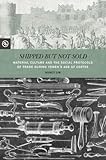Shipped but Not Sold : Material Culture and the Social Protocols of Trade during Yemen's Age of Coffee / Nancy Um; ed. by Anand A. Yang, Kieko Matteson.
Material type: TextSeries: Perspectives on the Global PastPublisher: Honolulu : University of Hawaii Press, [2017]Copyright date: ©2017Description: 1 online resource (256 p.) : 11 color, 12 b&w illustrations, 2 mapsContent type:
TextSeries: Perspectives on the Global PastPublisher: Honolulu : University of Hawaii Press, [2017]Copyright date: ©2017Description: 1 online resource (256 p.) : 11 color, 12 b&w illustrations, 2 mapsContent type: - 9780824866402
- 9780824866433
- 394/.4 23
- GN449.8
- online - DeGruyter
- Issued also in print.
| Item type | Current library | Call number | URL | Status | Notes | Barcode | |
|---|---|---|---|---|---|---|---|
 eBook
eBook
|
Biblioteca "Angelicum" Pont. Univ. S.Tommaso d'Aquino Nuvola online | online - DeGruyter (Browse shelf(Opens below)) | Online access | Not for loan (Accesso limitato) | Accesso per gli utenti autorizzati / Access for authorized users | (dgr)9780824866433 |
Browsing Biblioteca "Angelicum" Pont. Univ. S.Tommaso d'Aquino shelves, Shelving location: Nuvola online Close shelf browser (Hides shelf browser)

|

|

|

|

|

|

|
||
| online - DeGruyter Five Faces of Japanese Feminism : Crimson and Other Works / | online - DeGruyter Catholics and Anti-Catholicism in Chosŏn Korea / | online - DeGruyter Living Teacher Education in Hawai'i : Critical Perspectives / | online - DeGruyter Shipped but Not Sold : Material Culture and the Social Protocols of Trade during Yemen's Age of Coffee / | online - DeGruyter Light in the Queen's Garden : Ida May Pope, Pioneer for Hawai'i's Daughters, 1862-1914 / | online - DeGruyter Educating Monks : Minority Buddhism on China's Southwest Border / | online - DeGruyter Citing China : Politics, Postmodernism, and World Cinema / |
Frontmatter -- Contents -- List of Illustrations -- Acknowledgments -- Note on Spelling, Conventions, and Dates -- INTRODUCTION -- 1. Rites of Entry at the Maritime Threshold -- 2. European Merchant Tribute in Yemen -- 3. Merchants from India and Their Gift Practices in Yemen -- 4. Everyday Objects and Tools of the Trade -- Conclusion -- Notes -- Bibliography -- Index
restricted access online access with authorization star
http://purl.org/coar/access_right/c_16ec
In the early decades of the eighteenth century, Yemen hosted a bustling community of merchants who sailed to the southern Arabian Peninsula from the east and the west, seeking and offering a range of commodities, both luxury and mundane. In Shipped but Not Sold, Nancy Um opens the chests these merchants transported to and from Yemen and examines the cargo holds of their boats to reveal the goods held within. They included eastern spices and aromatics, porcelain cups and saucers with decorations in gold from Asia, bales of coffee grown in the mountains of Yemen, Arabian horses, and a wide variety of cotton, silk, velvet, and woolen cloth from India, China, Persia, and Europe; in addition to ordinary provisions, such as food, beer, medicine, furniture, pens, paper, and wax candles. As featured in the copious records of the Dutch and English East India Companies, as well as in travel accounts and local records in Arabic, these varied goods were not just commodities intended for sale in the marketplace. Horses and textile banners were mobilized and displayed in the highly visible ceremonies staged at the Red Sea port of Mocha when new arrivals appeared from overseas at the beginning of each trade season. Coffee and aromatics were served and offered in imported porcelain and silver wares during negotiations that took place in the houses of merchants and officials. Major traders bestowed sacks of spices and lavish imported textiles as gifts to provincial governors and Yemen's imam in order to sustain their considerable trading privileges. European merchants who longed for the distant comforts of home carried tables and chairs, along with abundant supplies of wine and spirits for their own use and, in some cases, further distribution in Yemen's ports and emporia. These diverse items were offered, displayed, exchanged, consumed, or utilized by major international merchants and local trade officials in a number of socially exclusive practices that affirmed their identity, status, and commercial obligations, but also sustained the livelihood of their business ventures. Shipped but Not Sold posits a key role for these socially significant material objects (many of which were dispatched across oceans but not intended only for sale on the open market) as important signs, tools, and attributes in the vibrant world of a rapidly transforming Indian Ocean trading society.
Issued also in print.
Mode of access: Internet via World Wide Web.
In English.
Description based on online resource; title from PDF title page (publisher's Web site, viewed 02. Mrz 2022)


